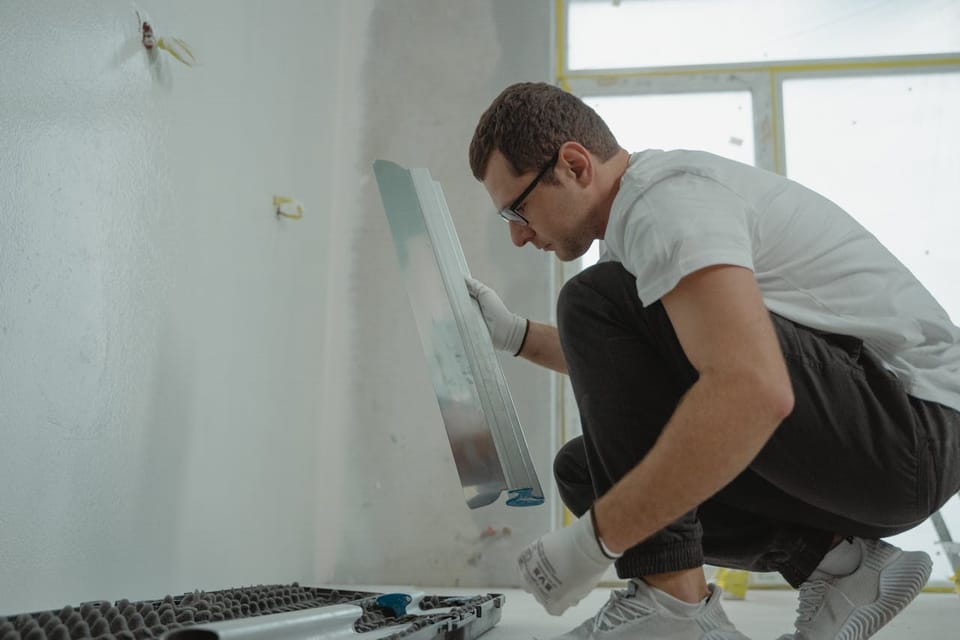Avoiding Haphazard Seller Home Repairs

While flippers and investors often see deferred maintenance and defects as profit opportunities, for prospective owner occupants they're an obstacle that stands between them and the move-in ready low maintenance home of their dreams. For those home buyers relying on lending products like FHA and VA loans the hurdle can be even stickier, since deferring the repair indefinitely isn't permitted by the loan underwriting terms.
If the parties are acting in good faith, then the seller's disclosures should lay bare the adverse facts they're aware of, and the buyer's offer should account for that condition. Inspections then, should be utilized to confirm the condition matches the seller's representation in the disclosures.
The Art of Negotiating Repairs
Buyers performing inspections are likely to uncover issues - some minor, others potentially significant. Negotiating repairs becomes a delicate dance between protecting your investment and maintaining goodwill with the seller. You have options:
- Request Seller Repairs: Asking the seller to fix problems before closing.
- Negotiate a Price Reduction: Adjusting the sale price to account for repair costs.
- Ask for a Repair Credit: Receiving funds at closing to handle repairs yourself.
- Renovation Lending: Some loan products allow the buyer to finance necessary or desired renovations, to be performed after closing
While having the seller perform repairs might seem convenient, it's essential to tread carefully.

The Hidden Pitfalls of Seller-Agreed Repairs
Allowing the seller to manage repairs can introduce several challenges:
- Quality Concerns: Sellers may opt for the least expensive contractor or quick fixes that don't address underlying issues. Their goal is to minimize costs, which might not align with your expectations for quality.
- Lack of Control: You have limited say over who performs the work, the materials used, or the methods applied. This can lead to subpar results or future problems if repairs aren't done correctly.
- Delays and Complications: Incomplete or delayed repairs can push back your closing date, causing logistical headaches and additional expenses.
- Compliance Issues: There's a risk that repairs won't meet local building codes or regulations, leading to legal liabilities down the line.
- Documentation Gaps: Without proper records of the repairs, reselling the property in the future might become complicated.
To sidestep these pitfalls, consider potential advantages of handling repairs yourself after closing:
- Negotiate a Credit or Price Reduction: This gives you the financial flexibility to address repairs on your terms.
- Ensure Quality and Compliance: You can select trusted contractors, specify materials, and ensure all work meets or exceeds industry standards.
- Control the Timeline: Schedule repairs at your convenience without the pressure of looming closing dates.
- Enhance Future Value: Quality repairs often contribute to the home's long-term value and your peace of mind.
Strategies for Effective Negotiation
- Prioritize Issues: Focus on significant problems affecting safety or structural integrity, like electrical hazards, foundation issues, or lender required repairs.
- Use Inspection Reports as Leverage: Detailed documentation supports your case and adds weight to your requests.
- Maintain Open Communication: Approach negotiations collaboratively. Understanding the seller's position can lead to mutually beneficial solutions.
- Consult Professionals: Your real estate agent can offer invaluable advice and advocate on your behalf, navigating the nuances of negotiation.

The Bigger Picture
As a Buyer, if there are must-have repairs prior to closing, then seller performed repairs are an effective tool, but in the process you may lose control how the work is performed, and there is the potential for disagreement wherein the seller argues they've completed their obligations to the letter of the contract while as the buyer you remain unsatisfied, but may be compelled to move forward with the purchase anyway.
